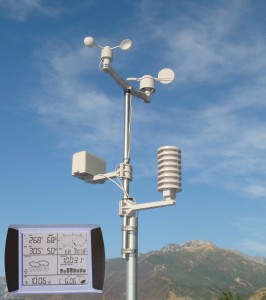On a typical morning I drive to work and pass several things which would normally not factor largely into my thoughts. I drive through several traffic lights on the way to work. I also pass several small scale manufacturing facilities and one large scale factory producing automobiles. I pass several shipping and warehousing businesses. Finally, I pass the security system when I walk in the door at the office. This morning, as I think about each of these, I am forced to see that a simple process is taking place within each system that I have been mostly unaware of.
 Data Logging is happening in each of the above examples. Traffic intersections log the number of vehicles travelling in each direction as well as the numbers of vehicles at each light interval. Manufacturing systems log every aspect of the manufacturing process. Shippers monitor the temperature and other environmental conditions of their cargo and the humidity is often considered in long term storage solutions. Security systems log each entry into a building, times when armed or disarmed, as well as input from sensors mounted throughout the security area.
Data Logging is happening in each of the above examples. Traffic intersections log the number of vehicles travelling in each direction as well as the numbers of vehicles at each light interval. Manufacturing systems log every aspect of the manufacturing process. Shippers monitor the temperature and other environmental conditions of their cargo and the humidity is often considered in long term storage solutions. Security systems log each entry into a building, times when armed or disarmed, as well as input from sensors mounted throughout the security area.
So how do we teach a student about a very important and prevalent process that exists within most industries and most very simple systems we take for granted every day? While we are busy teaching students about the skill sets they require for a trade, or the qualifications they require for their degree, or the degree they require for their career at what point do we teach students that underlying processes exist common to all industry? Students are aware of some common processes. Math is taught to all students and each student will someday see a reason for this instruction. Life Sciences are also taught as well as hands on skills like basic tech, electronics, or physical education. So how can we teach students that these processes exist? Data logging is only one example, and the tools do exist.
 Fourier Education produces a series of Data Loggers which offer teachers the ability to give students exposure to this simple but important process, and this begins with the EcoLog XL. The EcoLog XL is a small and ultra portable Data Logger equipped with five built in sensors and equipped with two additional sensor ports for external sensor hookup. The five internal sensors measure Temperature, Light, Sound, Humidity and Air Pressure. These built in sensors are similar to data loggers designed for industry and used in Cold Chain monitoring, Life Sciences storage applications or Geothermal Energy production.
Fourier Education produces a series of Data Loggers which offer teachers the ability to give students exposure to this simple but important process, and this begins with the EcoLog XL. The EcoLog XL is a small and ultra portable Data Logger equipped with five built in sensors and equipped with two additional sensor ports for external sensor hookup. The five internal sensors measure Temperature, Light, Sound, Humidity and Air Pressure. These built in sensors are similar to data loggers designed for industry and used in Cold Chain monitoring, Life Sciences storage applications or Geothermal Energy production.
The EcoLog XL is equipped with an LCD screen to give the students a real time reading from all seven sensors simultaneously. The EcoLog XL also has corresponding data analysis software that allows students to display the data in fun, colorful formats and get the most out of the experiment with its easy-to-use data analysis tools. There are also unique video workbooks that will outline prepared experiments, the ability to record video of the experiments in real time in order to display them in a multimedia report, as well as automatic analysis tools such as linear fit, slope, area and statistics allow students to perform a range of data analysis, adding vital pedagogue value to their experiments.
 The EcoLog XL from Fourier Education is one way for teachers to expose and show students systems and processes which exist in real life. While we focus on the specifics of our student’s education, perhaps we should spend some time on the broader skills that will familiarize students with real time processes that exist around us.
The EcoLog XL from Fourier Education is one way for teachers to expose and show students systems and processes which exist in real life. While we focus on the specifics of our student’s education, perhaps we should spend some time on the broader skills that will familiarize students with real time processes that exist around us.
Author: Matthew Colbeck
Share this Post
